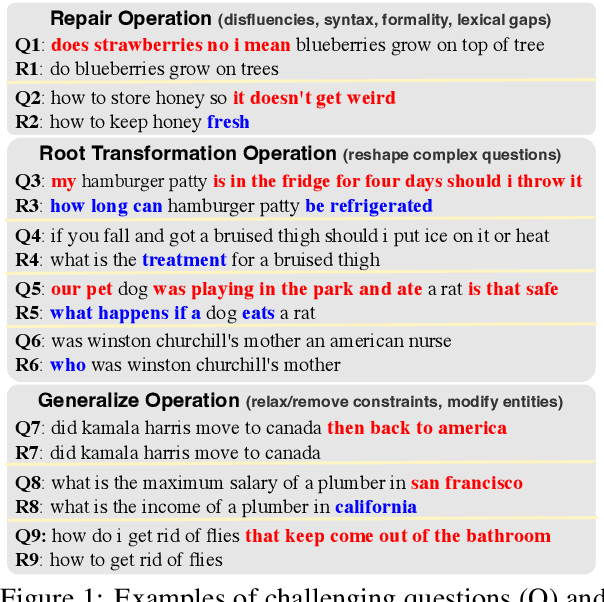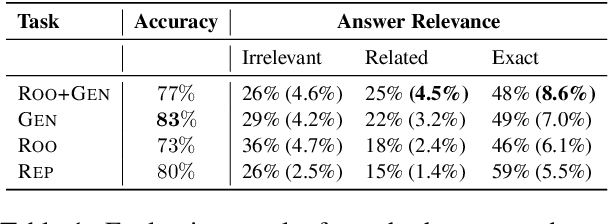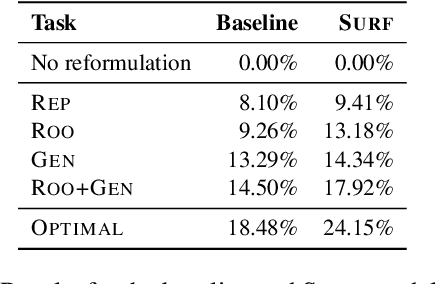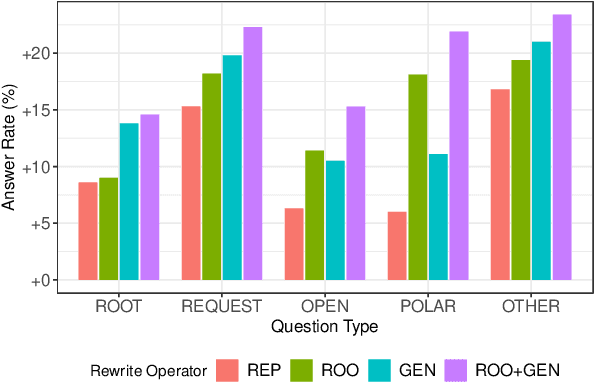Answering Unanswered Questions through Semantic Reformulations in Spoken QA
Paper and Code
Jun 03, 2023



Spoken Question Answering (QA) is a key feature of voice assistants, usually backed by multiple QA systems. Users ask questions via spontaneous speech which can contain disfluencies, errors, and informal syntax or phrasing. This is a major challenge in QA, causing unanswered questions or irrelevant answers, and leading to bad user experiences. We analyze failed QA requests to identify core challenges: lexical gaps, proposition types, complex syntactic structure, and high specificity. We propose a Semantic Question Reformulation (SURF) model offering three linguistically-grounded operations (repair, syntactic reshaping, generalization) to rewrite questions to facilitate answering. Offline evaluation on 1M unanswered questions from a leading voice assistant shows that SURF significantly improves answer rates: up to 24% of previously unanswered questions obtain relevant answers (75%). Live deployment shows positive impact for millions of customers with unanswered questions; explicit relevance feedback shows high user satisfaction.
 Add to Chrome
Add to Chrome Add to Firefox
Add to Firefox Add to Edge
Add to Edge